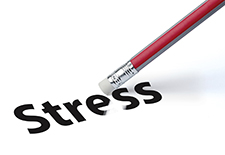 We’ve talked about how to overcome a tough job search before, but can you actually have fun while searching for a job?
We’ve talked about how to overcome a tough job search before, but can you actually have fun while searching for a job?
A seemingly endless job search with little success can be frustrating and upsetting. Hiring managers aren’t calling you back. Rejection letters come as often as the bills do. And, you have to keep telling friends and acquaintances that, no, you still haven’t found a job.
With all this stress, how do you stay sane during a tough job search? Try to have some fun. Below are tips on staying sane, upbeat, and happy when the job outlook seems anything but.
Stay Social
Being unemployed has the unexpected benefit of allowing you a lot more free time to reconnect with friends, family, and loved ones. Schedule coffee dates or go to networking parties. Rekindling past friendships can be rewarding on an emotional level, but you’re also likely to find someone who can help you in some way with your job search.
Take a Class
Learning a new skill not only benefits your job search, but boosts confidence too. By taking a class in a new hobby, a career-centered skill, or just for fun will help keep your mind active and your self-worth soaring. The U.S. Department of Labor even has job training programs available for those who qualify. In addition to learning a new skill, you’ll also meet new people and maybe even find a new career.
Stay Healthy and Active
If you aren’t working right now, why not use that free time to improve your health? Remember when you had to work long hours and couldn’t spare any time for the gym? Now you can. Countless studies show that exercise is vital to maintaining a positive outlook in life. According to the Mayo Clinic, “physical activity stimulates various brain chemicals that may leave you feeling happier and more relaxed.” You may also feel better about yourself when you exercise regularly, which can boost your confidence and improve your self-esteem, traits you’ll need during your job search.
Volunteer
According to a recent article in Psychology Today, “providing assistance to other people helps manage stress, provides greater relationship satisfaction, reduces depression, and can even reduce risk of mortality.”
Volunteering also puts you in the spotlight in front of decision-makers who can help you with introductions and referrals. You’ll feel needed, accomplished, and grateful for what you have, which boosts your sense of self worth.
Do Something for Yourself
Believe it or not, pampering yourself isn’t a frivolous indulgence. Consider it an investment in your job-hunting efforts. A new haircut, a quality manicure, or a new suit can do wonders for your mood, but also for your appearance in job interviews. A simple thing like a new scarf or a bright tie may be what you need to add that little spark that makes all the difference.
The truth of the matter is that most worthy quests are tough before they get easy, and your job search is no different. But, the more time and effort you take to keep positive, motivated, healthy, and realistic, the better your chances are.
Do you have any advice on having fun during a tough job search? Share your tips in the comments section below.
Movin’ On Up is brought to you by Express Employment Professionals.



 In the 80s, Madonna would sing about being a “material girl living in a material world” but today, she’d be more likely to be a “digital girl living in a digital world.” We are constantly surrounded by electronic devices and their ever-glowing screens. Millions of Americans wake up to work at a computer screen all day, take break periods to text, chat, and update their social media site on their
In the 80s, Madonna would sing about being a “material girl living in a material world” but today, she’d be more likely to be a “digital girl living in a digital world.” We are constantly surrounded by electronic devices and their ever-glowing screens. Millions of Americans wake up to work at a computer screen all day, take break periods to text, chat, and update their social media site on their 